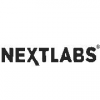No more applications are being accepted for this job
- Lead a team of SDET engineers to develop and execute automated tests for complex software products.
- Identify and manage risks, issues, and potential defects throughout product life cycles.
- Lead quality acceptance activities for each project milestones.
- Develop project plans, monitor the execution of project activities, and coordinate any changes.
- Contribute and review code and test scripts as part of a collaborative team.
- Build and maintain test infrastructure and CI processes to perform automated testing.
- Develop, maintain, and augment technical documentation and source control.
- Foster a culture of innovation and continuous improvement in all areas of technology and instill the principles of this culture in the team.
- Provide technical leadership as working coach and perform hands-on solution implementation as needed.
- Effective communication with management and the team.
- Engineering or Computer Science degree or equivalent.
- 5+ years of software development or testing experience.
- 2+ years of leadership experience in leading successful software engineering teams.
- Demonstrate innovation, strong collaboration, excellent communication skills, and a passion for designing high-quality software.
- Expert in at least one programming language such as Java, Python or C++.
- Proficient with QA tools and automation frameworks such as Jira, Selenium and Robot Framework. A working knowledge of Selenium is desired.
- Experienced in implementing continuous integration and delivery concepts (CI/CD) using containers and orchestration tools such as Docker and Kubernetes on AWS, Azure or Google Cloud is a plus.
- Hands-on experience or knowledge in the following areas are desired.
- ERP systems such as SAP ECC, SAP S/4 HANA or Oracle ERP
- Databases such as Oracle DB, Microsoft SQL Server, PostgreSQL, Google BigQuery or AWS Aurora
Software Development Manager - Kuala Lumpur, Malaysia - NextLabs

Description
Responsibilities:
Requirements:
